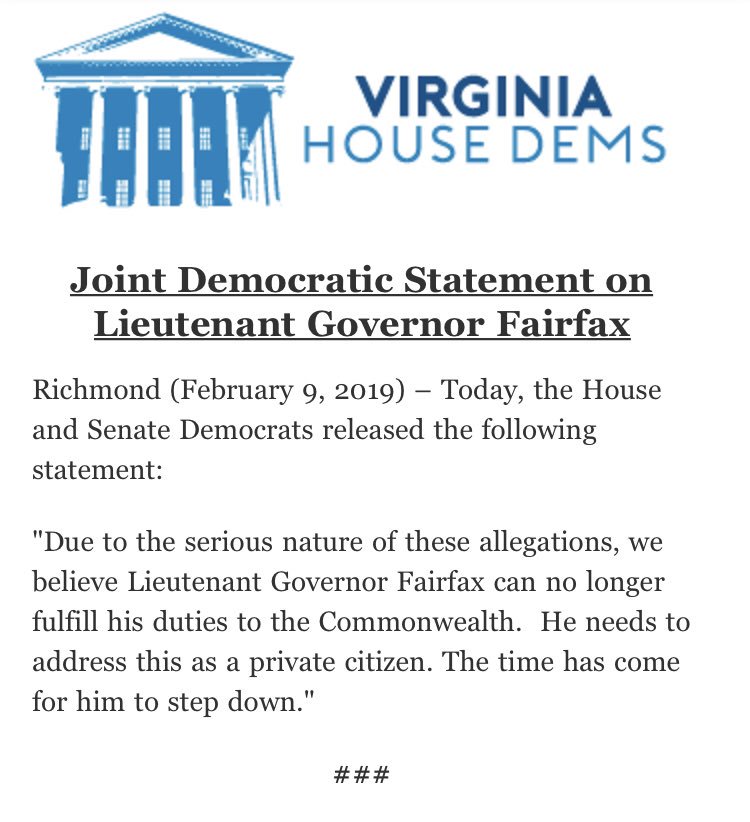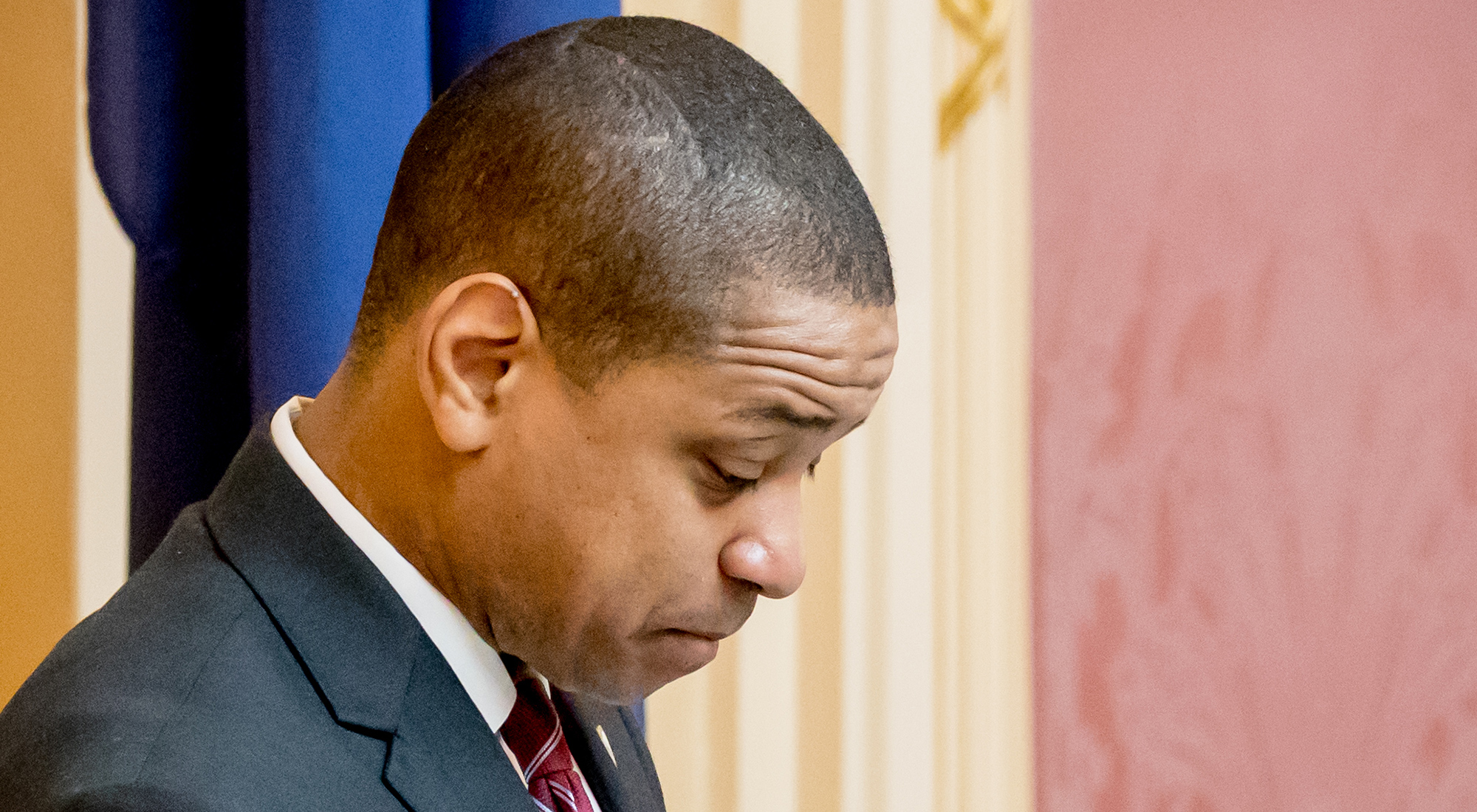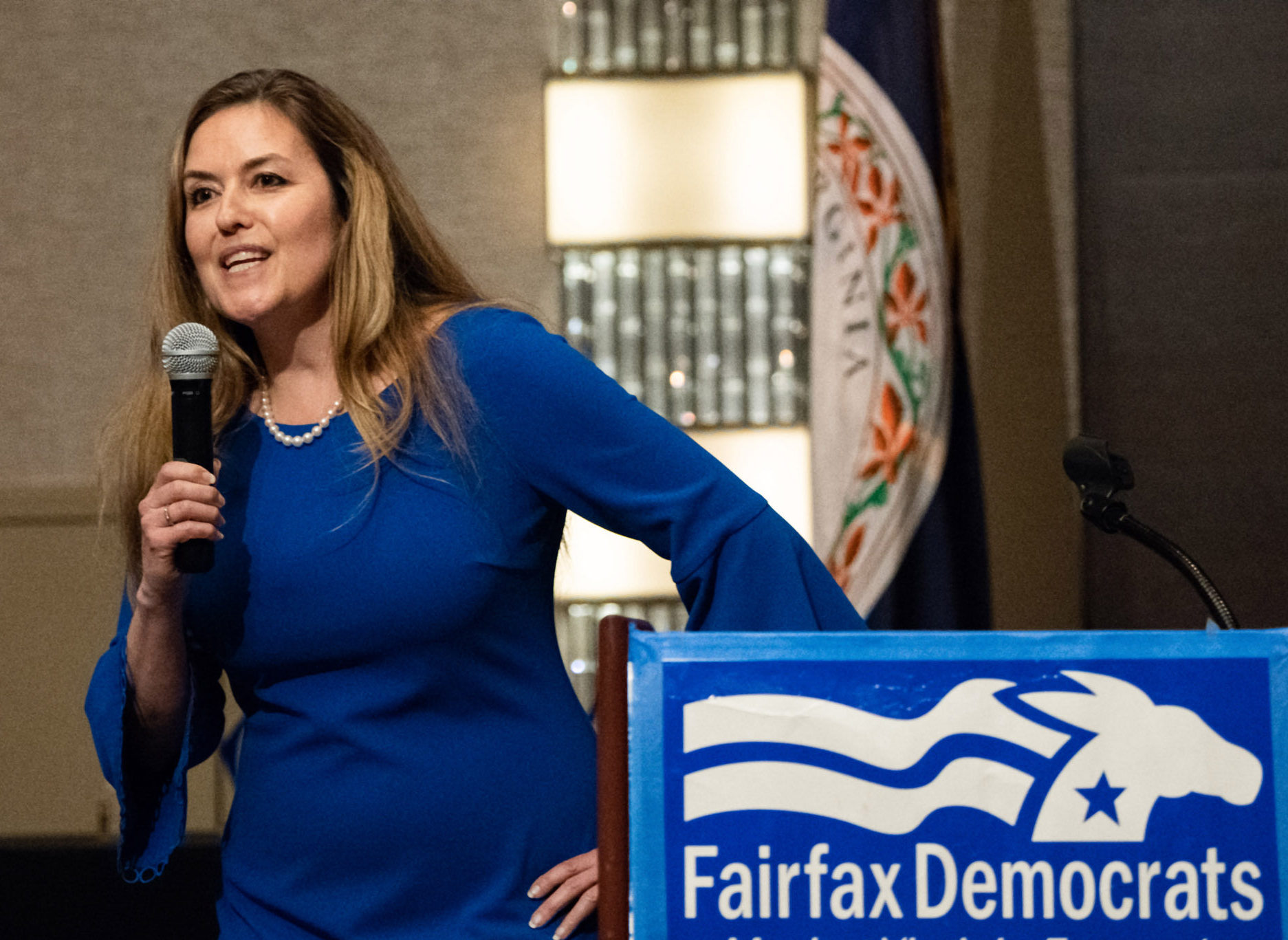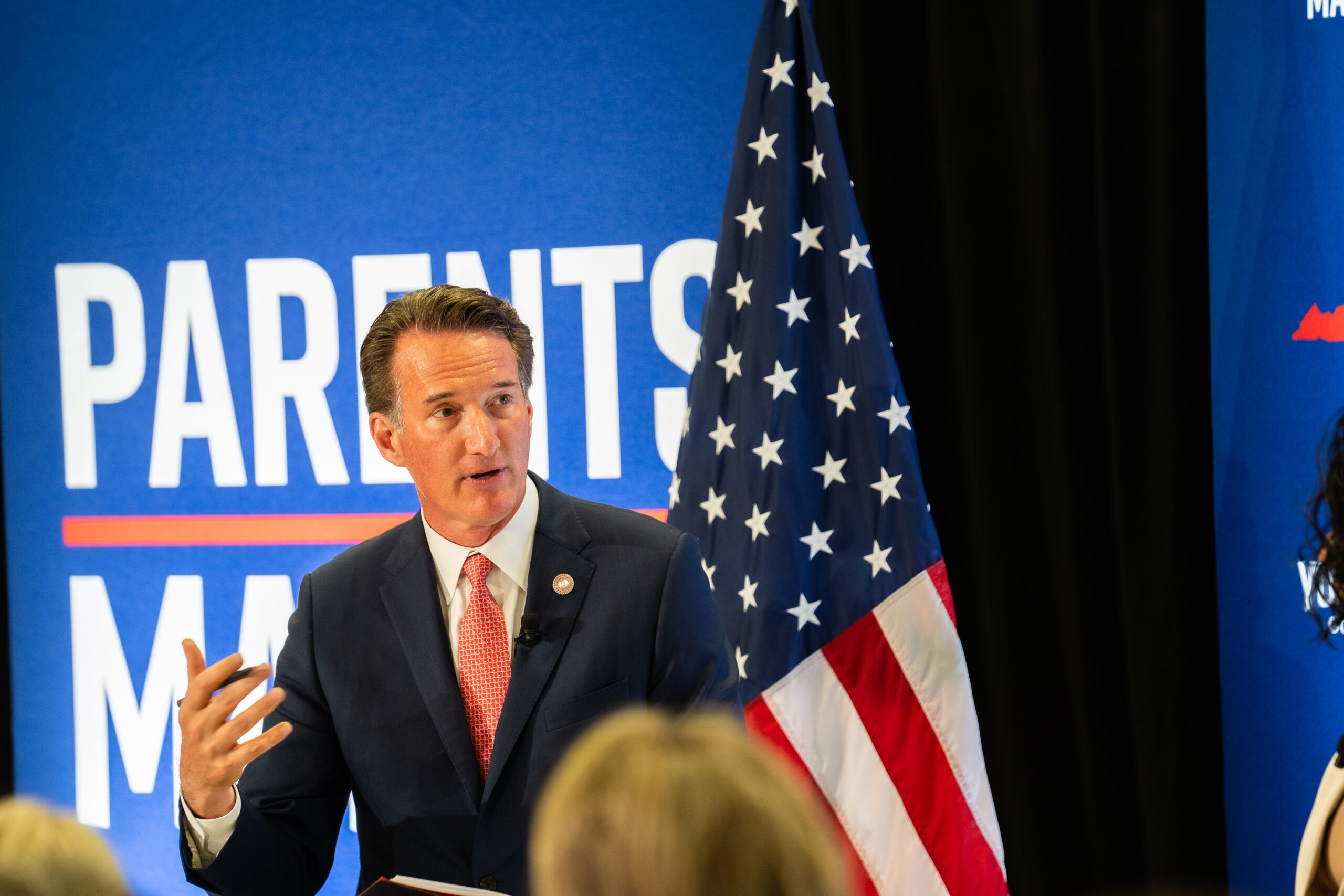As the turmoil in Richmond continues, a leaked email from inside the House Democratic Caucus is igniting a fresh round of controversy in the ongoing scandal involving two sexual assault allegations made against Lieutenant Governor Justin Fairfax.
On Monday, the House Democratic Caucus sent a confidential email to its members, instructing them to avoid questions from reporters related to Lt. Governor Fairfax.
The private email was leaked by a Democratic lawmaker to Jonathan Martin at the New York Times, who first reported it Tuesday morning.
In it, Democrats were instructed to sidestep inquiries about whether they believe the two women who have accused Fairfax, Dr. Vanessa Tyson and Meredith Watson, and were instead told to respond with talking points which did not directly address the question.
The allegations “against our Lieutenant Governor are credible and extremely serious and it is why my colleagues and I have called for him to step down,” said the email, according to the leaked talking points reported by Martin.
“It took great courage for both women to share their stories. As Democrats, and as Virginians, we must continue to stand up and speak out against sexual assault” continued the form response suggested by the email.
Not all Democrats have heeded the party talking points.
“Dear Virginia, I believe Dr. Vanessa Tyson,” tweeted Delegate Patrick Hope (D-Arlington), who planned to introduce articles of impeachment against Fairfax before backing off under pressure from the caucus. “I believe Meredith Watson. I believe Lieutenant Governor Justin Fairfax should resign.”

“I believe Dr. Tyson,” said Delegate Lee Carter (D-Manassas).
“I believe survivors and I call for the resignation of Lieutenant Governor Justin Fairfax,” wrote Delegate Hala Ayala (D-Woodbridge).
However, most Democrats who have weighed in with calls for Fairfax’s resignation have avoided taking sides in the underlying dispute, or whether the General Assembly should investigate, preferring instead to suggest that he address the allegations as a private citizen.
“Due to the serious nature of these allegations, we believe Lieutenant Governor Fairfax can no longer fulfill his duties to the Commonwealth,” wrote the House and Senate Democratic caucuses, in a February 9th statement. “He needs to address this as a private citizen. The time has come for him to step down.”

“I ask that Lt. Governor Fairfax resign,” tweeted Delegate Chris Hurst (D-Blacksburg), sticking to a more cautious formulation. “It’s clear he can no longer help lead the Commonwealth without the faith of the people. Women and all survivors deserve to be heard. He cannot address these credible and serious allegations and remain in office.”
Congressional Democrats, not bound by caucus pressure, were less cautious in their response.
On February 8th, Democratic Representatives Elaine Luria, Abigail Spanberger, Don Beyer, Jennifer Wexton, and Gerry Connolly issued a statement siding with Dr. Tyson and calling for Fairfax’s resignation.
“We believe Dr. Vanessa Tyson,” read the joint statement. “We found her account compelling and highly credible.”
“Lt. Governor Fairfax has also shown exceptionally poor judgment in his handling of these allegations,” continued the statement. ” He has repeatedly attacked his accuser, he reportedly used vile and degrading language to describe her, he mischaracterized an investigation into the encounter, and he sought to blame others for events in his own past.”
“For these reasons we believe that Justin Fairfax cannot continue to serve at [sic] Lt. Governor of Virginia, and he should step aside,” they concluded.”

“I am horrified and repealed by Meredith Watson’s account of being raped by Lt. Governor Fairfax at Duke University,” wrote Connolly, in his own statement. “Lt. Governor Fairfax must resign.
“I believe Dr. Vanessa Tyson,” tweeted Wexton. “I believe Meredith Watson. And I believe Lieutenant Governor Justin Fairfax must resign.”
With Democrats divided over how the allegations should be handled, and whether the impeachment process should proceed, the suggested talking points risk alienating female voters looking for more direct statements from lawmakers on the very serious charges.
The equivocation also risks raising charges of hypocrisy brought on by the same lawmakers’ responses to allegations of assault leveled against Supreme Court Justice Brett Kavanaugh during his 2018 confirmation hearing.
Last Friday, Del. Hope announced plans to introduce articles of impeachment against Fairfax on Monday, a plan which fell apart after weekend pushback from inside the Democratic caucus. While Hope cited procedural concerns, a number of his colleagues expressed their opposition to the process on a conference call, ultimately leading him to withdraw his impeachment push, knowing he lacked sufficient support within his own party.
“A Northern Virginia legislator who had planned to file impeachment articles against Mr. Fairfax this week backed off after a handful of African-American members implored him, on a Sunday night conference call that grew tense, to keep the issue out of the legislative domain,” reported Martin.
Fairfax has resisted calls for impeachment, asking instead for an FBI investigation, which the agency cannot conduct for lack of jurisdiction.
Instead, he has characterized the allegations as being politically motivated, suggesting that accusations first made against him before his inauguration in January of 2018 were released to take pressure off Governor Ralph Northam to resign over his yearbook photo scandal.
Fairfax has maintained that position throughout a whirlwind media cycle, leading the Washington Post’s editorial board, which endorsed Fairfax for Lt. Governor, to write:
“Mr. Fairfax, a lawyer and former federal prosecutor, understands the meaning of words. So on what does he base his assertion that the accusations against him are ‘coordinated’? And if the rape allegation is ‘demonstrably’ untrue, as he said, in what way can he demonstrate it? And if he really believes the two women have invented spurious stories to ‘smear’ him, why does he think they would do that?”
Karen Tumulty, a columnist with the Post, put it more bluntly:
“3. What is his evidence that all of this is the result of a political conspiracy against him?”
“There is no known connection between Tyson and Watson, or any apparent political motive by either. Yet the lieutenant governor has wrapped himself in his own claim of victimhood. ‘It is obvious that a vicious and coordinated smear campaign is being orchestrated against me,’ he said in his statement Friday.
“Is it? When Vozzella asked him who might be behind such a conspiracy, Fairfax said he was ‘laser focused’ on doing his job as lieutenant governor and ‘getting the truth out.’ If indeed he wants to be heard, we are listening. And if he has some provable facts on his side, it is time for him to produce them.”
While Virginians await answers and actions, the Democratic Caucus position, as reported in the email, and in the pushback against impeachment, remains firmly against clear statements or actions.






1 Comment
[…] alleged victims are seeking a bipartisan hearing; Republicans are seeking a bipartisan hearing; Democrats in the House of Delegates are refusing to allow that to […]
Comments are closed.